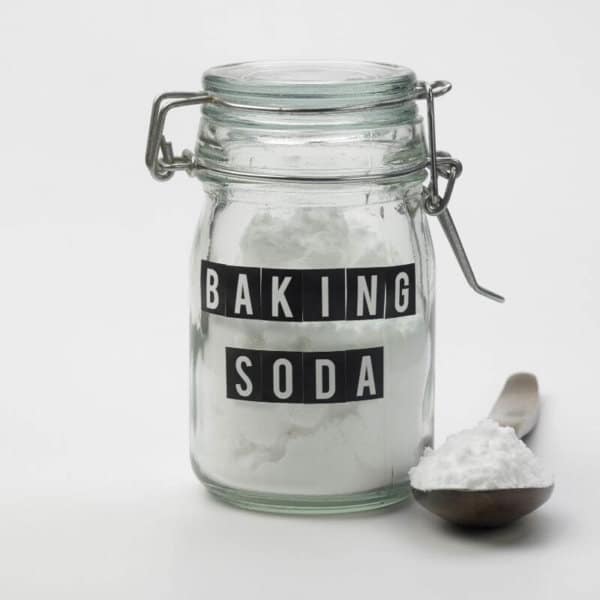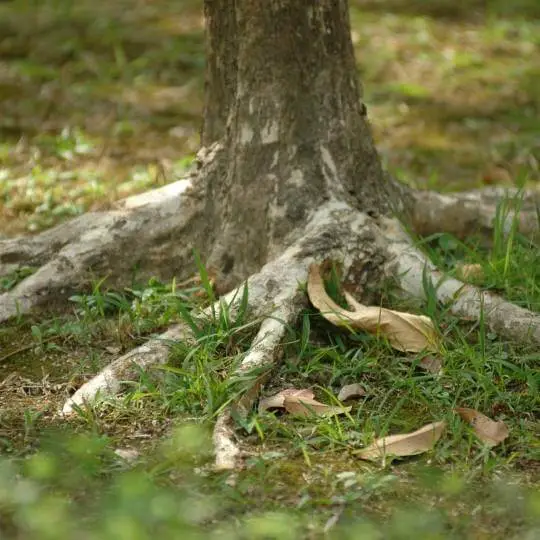Do you know how to make homemade root killer for sewer lines? These homemade stuff could help you to get rid of blocked lines without issues.
Have you ever wondered why tree roots in your backyard are so strong and thick? Well, that’s because they can easily find their way into your sewer lines that are full of nutrients, water, and oxygen that make these roots grow bigger and bigger every day. No doubt, trees can add beauty to your yard and reduce the need for air conditioning, yet, on the other hand… If these tree roots in your yard get too big, there is a chance they will start invading your pipes and causing sewage backups.
Maybe you have already noticed gurgling noises coming from your toilet or that your bathtub or that your sink drains have got slower. And, the thing is – tree roots could be the ones to blame. And, if you did notice this, you might want to start looking for solutions.
Do you know what kills roots in sewer lines other than professional root killing agents?
Or, do you know how to make homemade root killer for sewer lines?
Today, we are teaching you how to make a DIY root killer for sewer lines (actually a couple of them) using ingredients you probably have somewhere in or near your home.
Homemade Root Killer for Sewer Lines #1 – Salt

You can use different types of salt to kill roots in your sewer pipes – regular salt, rock salt, and Epsom salt.
1. Rock salt
Rock salt is one of the most efficient solutions when it comes to killing tree roots in sewer lines. Although primarily used for melting ice and snow on roads and sidewalks during winter, rock salt is a powerful chemical compound that can destroy tree roots before you say cheese.
Just pour some rock salt into the toilet, either flush it or pour a bucket of hot water down there and the thing will start going its job right away. If you don’t have any rock salt in your home, you can buy it in most home improvement or local hardware stores.
Just be careful when using rock salt to kill tree roots. Rock salt may make the roots go dry but also kill the whole tree as well as any other plants near the tree so make sure not to flush it all around your yard.
2. Regular salt
Alternatively, you can use regular salt to kill tree roots. Just pour 1 pound down the toilet, flush it several times, then follow up with another pound of salt and flush it. Then, you should not flush the toilet for the next 8 to 12 hours so the salt has more than enough time to kill the roots.
3. Epsom salt
Magnesium sulfate, more known as Epsom salt [1], works wonders when it comes to clogged pipes and tree roots. Just like regular salt, Epsom salt can, as well, absorb moisture from the tree roots, making them go dry. Once the roots lose moisture, they will become brittle, so you’ll be able to remove them from the pipes.
How do you kill tree roots using Epsom salt? Find a small bucket, fill it with water, and add some Epsom salt to it. Pour this mix around the biggest tree roots and cover these areas with a tarp. Maybe you’ll have to repeat this process 2-3 times but it will do the work. For faster results, drill some holes around the stumps and pour a generous amount of water mixed with Epsom salt in each.
It is nice to know that Epsom salt is 100% safe to use since it doesn’t harm sewer pipes and septic tanks. Did you know some people think septic tanks are bad?
If you flush some Epsom salt into your sewer system every once in a while, you’ll also prevent new tree roots from forming. However, Epsom salt can not kill the tree roots only but the whole tree in fact. Do not use Epsom salt if the tree is very close to your home, because it may make the branches go dry, fall off, and damage your home or even hurt you.
Homemade Root Killer for Sewer Lines #2 – Baking Soda and Vinegar

If you’ve been thinking to yourself “what can I use to kill roots in my sewer line without investing much money”, we have a super budget-friendly suggestion. It is a homemade foaming solution actually, and foaming solutions seem to do really well when it comes to killing tree roots.
Professional plumbers use strong foaming chemical agents for killing tree roots. If you don’t want to go for toxic mixtures but still want to get rid of tree roots and prevent clogs, this baking soda + vinegar mixture will do the trick.
Alternatively, you can visit some of the garden centers in your area and ask for products that contain dichlobenil [2]. Also, dichlobenil is not harmful to septic systems and you can use it worry-free.
Mix some baking soda and vinegar in ratio 2:1 flush the mixture through the system, then make some more and use it to feed the soil around your sewer pipes with it – it’s that simple.
For even better results, mix 1 cup of table salt, 1 cup of vinegar, 1 cup of baking soda, and 1 cup of boiling water and flush it down the toilet.
How to Prevent Root Intrusion?

You can kill tree roots with your handmade root killer, however, they will still stay there – in your sewer lines all until you remove them using an auger. In order to make sure tree roots don’t invade your sewer system again, use copper sulfate to saturate the ground in your backyard, especially around the pipe and your sewer lines. It’s good to know that many professionals recommend using copper sulphate as the best treatement for preventing those nasty roots from growing larger and longer in sewer pipes.
Oh, now that we mentioned your backyard once more, you’ll want to read our blog about why is water coming out of the ground in your yard.
You will have to dig several holes around the yard, cut several small pipes 1 ½-inch length and place them into each hole, then fill the pipes with copper sulfate crystals and hot water and cap them. It would be great if you could repeat this process every couple of months if possible to eliminate even the slightest chance of tree roots invading your sewer pipes and your home.
The good thing is – copper sulfate won’t kill the tree and it is poisonous to the roots only. In fact, as soon as the very tip of the root absorbs some copper sulfate, it will start getting dry and, eventually, die. However, we should also say that copper sulfate best works on smaller roots and not large ones. To kill large tree roots with copper sulfate, you will have to apply this treatment every couple of days for one to two weeks.
Summary
Today, we talked about how to make homemade root killer for sewer pipes, and, hopefully, one of these solutions will help you cut the problem at the root (literally). You just wouldn’t believe how large tree roots can get, which is why you shouldn’t wait for too long before taking any action.
However, note that, if you want to solve this problem long-term, we highly recommend cleaning your sewer lines once or twice per year. When dealing with major clogs, you’ll want to repeat the chosen method multiple times or, if nothing helps, contact a tree root removal service and hire professionals that will handle this for you.

Michael Davis is a heating & plumbing expert who currently works as independent contractor in SC. He also writes for Plumbertip.
For almost 10 years he worked on various plumbing tasks across South Carolina.


